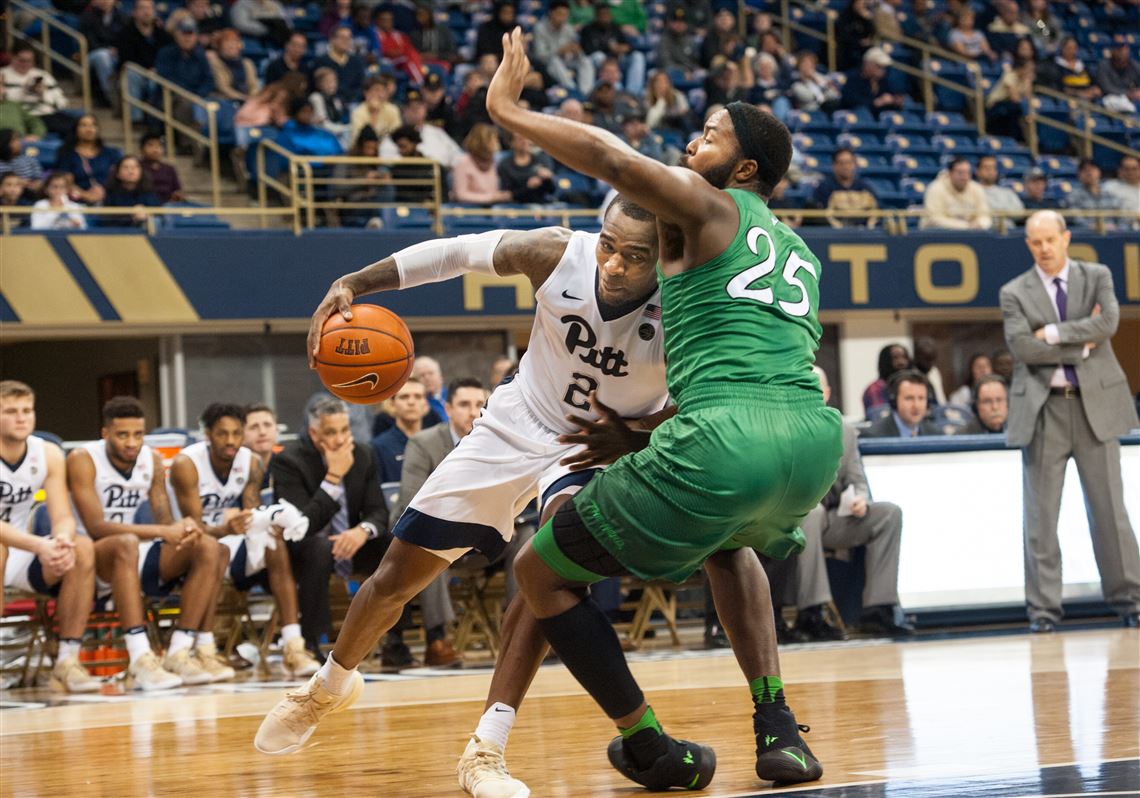Dan D’Antoni had seen games like this unfold before, with an overmatched team finding a way to, somehow, get within a few points or even win in what seemed like an instant.
He’d seen it before as an assistant coach under his brother Mike, now the coach of the Houston Rockets, when the two oversaw a Phoenix Suns team in the early 2000s that utilized a tempo and style of play that revolutionized the sport. Now the coach at Marshall, he has seen it with his own team, which accrues more possessions than all but four of 351 Division I teams. With the way his team plays, he reasons, it’s never out of a game.
“I tell our team all the time, ‘When we’re up 20, it’s still a ballgame; you better be playing. If we’re down 20, that other team better realize it’s still a ball game,’ ” D’Antoni said after Pitt’s 112-106 victory Wednesday night. “Because the way we play, points are going to go up on the board.”
In 13 games as Pitt’s coach, Kevin Stallings has witnessed it, too, albeit for different reasons. A Panthers team featuring four senior starters has puzzlingly made a habit this season of squandering leads of 20 or more. It will still hold on to win those games, but, perhaps for that reason, lessons never seem to be completely learned from those slips.
On opposing benches at Petersen Events Center, the two coaches saw that familiar sight transpire, with Pitt coming dangerously close to surrendering a 29-point second-half lead in what turned out to be a win to close out the non-conference portion of its schedule.
A familiar script came with familiar takeaways.
“It’s human nature to lose focus,” Stallings said. “I’m asking 18-, 22-year-old guys to do things even guys much older than them have a difficult time doing. It’s hard sometimes to play with a big lead. Again, we’ve had a bunch of big leads. That means we’re capable of doing some really good things.”
The 112 points were the fifth most in program history and the most since November 1993. Seniors Mike Young and Jamel Artis each had 30 points, with Sheldon Jeter (21 points, a season high) and Cam Johnson (16) also finishing in double figures.
The game was unique for what it was, but it would have been much more notable for what it nearly became.
After going into halftime up 20, the Panthers’ (11-2) lead grew to as many as 29, with just fewer than 15 minutes left in the second half. It was a moment when, as Jeter acknowledged after the game, it felt like for Pitt players that the game was over.
It proved to be anything but. Marshall, behind its fast pace and a more aggressive style afforded to it by a large deficit, came roaring back, getting within 10 with about five minutes remaining and five with 39 seconds left. The Panthers sank five of their final six free throws to hold on, but the victory came with a lingering and unsettling sense of deja vu.
“Sometimes, we need to worry more about being great than we worry about being different,” Stallings said. “We have a guy or two who sort of pride themselves on being different. They want to do little dumb things to be different. It seems to me like we’d be better off if we focused on being great instead of focused on being different.”
There are positives to be had with Pitt’s recurring problem, namely that it’s in a position to give such sizable leads away. It’s something it will carry with it as it enters play Saturday in the unforgiving ACC, a conference in which it was picked to finish 12th of 15 teams in the league’s preseason poll.
Even with some of the shortcomings that emerged in non-conference play, particularly the one that reappeared Wednesday, the Panthers feel good about where they stand.
“In the first 25 or 30 minutes, our effort just kind of overwhelmed them,” Jeter said. “If we play that hard with our experience and our ability to score, I don’t see how we won’t get a lot of wins in the ACC.”
Craig Meyer: cmeyer@post-gazette.com and Twitter @CraigMeyerPG.
First Published: December 29, 2016, 2:34 a.m.


















